101 Homesteading Skills We Need To Teach
Today, it’s all about the 101 homesteading skills we need to teach our kids, grandkids, and possibly our neighbors. We’ve heard much about homesteading, vintage, and pioneer skills in the last few years. I don’t know about you, but I can do all of these, and I bet you can, too. I wrote this post many years ago, but I believe we need this information more now than ever, so I’m updating the post as a refresher.
I have always pictured different farms growing vegetables and fruits and raising chickens, rabbits, goats, cows, etc. I remember visiting dairy farms. It seems now some people are calling themselves homesteading families if they’ve learned and are using these skills.
I remember growing up and occasionally hearing the word “homestead.” According to the Merriam-Webster Dictionary, a homestead is “the home and land acquired by a family” and “to acquire or settle on the public land.” I’m unsure how many people acquire public land these days, but many are trying to be more self-sufficient.
101 Homesteading Skills We Need To Teach
I think we need to explain what a homemaker is and why those people have homesteading skills. They run a house, meaning “the home and land acquired by the family.” I have recently wondered why so many blogs have become homesteading blogs. These are homemaking skills. Maybe they are trying to bring back the skills most of us have used and put them front and center.
I remember churches teaching these skills, as well as schools. Somehow, the teaching of these critical skills needs to be rekindled. What do you think has happened? We can’t continue to eat processed food, eat at fast food places, and eat food at restaurants every day; it’s not healthy. Plus, it’s so expensive.
Whoever heads your home and keeps it running smoothly, I tip my hat to you. It’s hard to be a homemaker and a homesteading family. I decided to break down the different areas of life we all have to deal with each day, no matter where we live, and discuss them. I’m not talking about backyard chickens, ducks, goats, and rabbits, which a few families have chosen to prioritize. I’m talking about those everyday activities that tie up our time and energy to make the home safe, healthy, and comfortable.
I have a friend, blogger Janet Garman, who has a farm called Timber Creek Farm (.com). She is truly a role model to follow if you want a farm. She dyes yarn and knits the most beautiful hand warmers; I have two sets. I love them! Today, it’s all about the homestead, as in our home.
If you understand and use any of these skills, please teach them at your church, schools, and neighborhoods. Trust me, people need to know these skills. You don’t have to live off-grid to take advantage of this knowledge; you want to be enterprising, cost-conscious, and more simplistic. Some would consider these survival skills, and when used properly, many would.
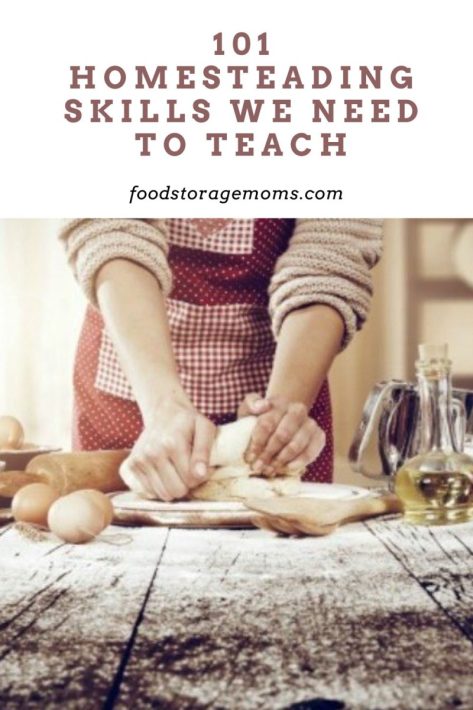
101 Homesteading Skills We Need To Teach
These are the things I learned growing up. How about you?
Baking
- I learned to make bread in a big old stainless steel bowl like this: Stainless Steel Bowl. We can survive if we learn to make bread in its many varieties, like sourdough bread. Beginners can check out my archive for a no-fail bread recipe with a few ingredients.
- Learn to grind wheat. I have two wheat grinders, an electrical one and a hand-powered one, in case my home’s power goes out.
- Learn to make whole-wheat bread. Whole-wheat bread is healthier and may tend to make you feel full.
- Learn to make bread with flour you can tolerate. Many families are dealing with gluten issues, but can still make bread.
- Learn to make natural yeast.
- Learn to make white bread that melts in your mouth.
- Learn to make dinner rolls to die for.
- I learned to make cinnamon rolls. I make a batch and share them with the neighbors; they love them!
- Learn to make biscuits—nothing like biscuits with some homemade gravy.
- Learn to make crackers. There is no reason to go to the store; create your own and eat them with fresh cheese.
- Learn to make crepes. Had some delicious crepes with fresh fruit for a Mother’s Day Lunch. What a hit!
- Learn to make tortillas. Who doesn’t like a Mexican meal at any time?
- Learn to make pancakes and waffles from scratch. We have a Mickey Mouse waffle maker that the grandkids use.
- Learn to make a cake without a cake mix. I genuinely love making things from scratch.
- We learned to make frosting without a container or a box. We also try to avoid processed foods as much as possible.
- Learn to make pies from scratch (thank you, Jeanne). Making your pie crusts is fun, and you know what’s in them, too!
- Learn to make homemade pasta, it tastes so yummy (thank you, Bebe). We enjoy various pasta recipes and don’t have to go to the store first.
Canning
- Take a Master Preserver Canning course to keep up with the newest safety measures required to preserve our food. Four Foods You Should Never Can by Linda. Learn to can by water bath and by using a pressure canner. They both come in handy for various food products you harvest. Pressure-canning meat at home has become more common in preserving food. We love to eat jams and jellies, and we’ve canned and canned veggies like green beans, corn, squash, and herbs.
- I only use mason jars designed for canning. I like both Ball and Kerr products and prefer using wide-mouthed jars. The lids have been hard to come by the past few years, but seem to be more readily available now.
- Watch for chips or cracks and discard damaged jars. A quality seal will not be achieved with damaged jars.
- I never can eggs. The USU Extension Service class I took outlined various foods NOT to can. See numbers 5 – 7, too.
- Never can milk or cream
- Never can bacon
- Never can butter
- The new rule (USDA Canning 2025 Book) for canning tomatoes (they are less acidic now) is to add two tablespoons of bottled lemon juice or 1/2 teaspoon of citric acid to quart-size jars. Pint-size jars use one tablespoon of bottled lemon juice or 1/4 teaspoon of citric acid to compensate for the lower acid levels in today’s tomatoes.
- Always remove the rings after the jars are canned, cooled, and stored. This will ensure that if a lid pops up and becomes unsealed, it will not go back down because the ring was left on. You may never know if the seal popped up after storing it.
- When lifting your jars out of the hot water, never tip the jars; keep them upright. I have a nice jar lifter I use so I don’t get burned fingers!
- Pressure canners have weighted gauges, dial gauges, regulators, and rings. They should be checked yearly (replace as needed).
Cleaning Your Home
Make a schedule to keep up with your cleaning. A clean home is a house of order, peace, and serenity. Don’t try to clean the whole house in one day; spread out the chores and do them right the first time.
Share the following cleaning projects:
- Bathrooms
- Kitchens
- Living Room
- Bedrooms
- Closets
- Cupboards
- Fans
- Dusting
- Vacuuming
- Mopping
Cleaning Your Garage
I love a clean garage:
- Blow the dust and debris outside and put them in a trash can.
- Keep the garage doors oiled and lubricated. Some lubricants, from time to time, are cheaper than replacing motors and springs.
- Vacuum the entrance rug between the garage and the house once a week.
Cleaning Your Yard
Trust me on this one, I love a clean street. Is this a homesteading skill? I don’t know, but it’s important to me.
- Pick up blowing trash in your yard and adjoining neighbors’ yards. Help each other out.
- Pick up dog poop your neighbor’s dog has left, try not to be bitter because you always take a poop bag.
- Clean street gutters if you have street gutters; they make all the difference in a clean, tidy neighborhood.
- Keep your bushes trimmed, particularly near the home. They can become a fire hazard and a place for intruders to hide.
- Keep your trees trimmed so people can walk safely on the sidewalk in front of your home.
- Consider using a pre-emergent spray so weeds don’t become a problem for you and the neighbors.
Cooking
The following “how-tos” are fun to learn and will make your food preparation skills so much stronger:
- How to make a roux
- How to make a white sauce
- How to cook from scratch
- How to make rice without a rice cooker
- How to make gravy from meat drippings
- How to make/cook beans from a bag
- Buy good pans the first time. I use this Farberware saucepan all the time. Having the right cookware can make a real difference!
- Learn to make soups, stews, chili, and anything that will fill the belly for less money and still be healthy.
- Exchange recipes with friends that make up meals that are frugal and healthy.
- Put together a pantry and food storage inventory list. Check it monthly to ensure you’ll always have what you need.
Dehydrating Food
- You can dehydrate food on window screens or netting. Using the sun’s rays can save equipment costs, but it takes patience and skill.
- I have had two dehydrators in my life; they run nonstop. The one I have now is similar to this one: Excalibur.
- Dehydrating your food is for short-term storage only, a maximum of one year. We dehydrate both fruits and veggies. I use the veggies in my soups, stews, casseroles, and more, and I put the dried fruit in desserts.
- You can dehydrate frozen vegetables you find on sale without washing, slicing, or cutting them.
- When you combine homegrown garden products with canning and dehydrating the harvest, it is the best!
First Aid Skills and Supplies
Thanks to Daniel for these:
- Learn basic first-aid skills, including closing a wound with stitches and setting a broken bone.
- CPR class
I remember taking these classes at the YMCA long ago, but I am pretty sure your local fire station would be able to steer you in the right direction. First Aid Kit by Linda - Consider taking a Community Emergency Response Team (CERT) class. You and your neighbors learn skills that might save lives!
Gardening
- You can feed a family of 6-8 people with a garden. I know I have done it on a 1/4 acre. My family canned and preserved all the food for one year: no animal meat, just fruits and vegetables. We would enjoy the bounty we preserved and start again the following year. Gardens for Two by Linda and How to Grow A Garden by Linda
- Find the best area to plant a garden, and watch for sun and shade spots.
- My favorite item you need to start your garden (I have to use these items because I have rock-hard clay soil): Miracle-Gro Soil, buy at your local hardware stores.
- Composting, I confess, this is the only one I haven’t done yet. I buy my organic compost materials.
- Learn to trim and prune your fruit trees correctly.
- Buy Non-GMO, non-hybrid seeds and plants. You can use the seed from the heirloom seeds for next year’s plants.
- Turn the soil several times and add the following amendments, if you need them (#8 – #11):
- Azomite Micronized Bag
- Worm Castings
- Coco/Coconut Fibre Pot Mix
- Organic Vermiculate
Heating Your Home
- We taught our girls to use a good chainsaw. They cut down trees and split the logs to heat our home as a family. We used a wood-burning stove insert to heat our home for four full winters. This was a skill we all needed to learn. It’s hard work, but it teaches a family to work together as a team.
Home Maintenance
- Change your smoke alarm batteries at least once a year before they start to beep.
- Change your Carbon Monoxide detector batteries at least once a year: Carbon Monoxide Detector and Kidde Carbon Monoxide Detector, Propane, Natural, Methane, & Explosive Gas Alarm
- Change your furnace air filters often (thanks to Janet’s reminder). Remember, you may not need the HEPA filters in your home unless someone has severe allergies. An HVAC service tech told us to consider using the lower-cost filters. They catch the larger particles and let more air through, making them more fuel efficient.
Laundry
- Keep up with your laundry. Nothing is worse than a power outage when you need clean underwear. If I hear a storm coming, I start the laundry immediately, just in case of a power outage.
- Consider learning how to starch and iron your dress shirts.
- Save money and make your laundry detergent and soap products: Laundry Detergent.
Money Management
Make a budget with your net income, write it down, then write your bills on the other side of the paper. Put some in your monthly savings, even if only $1.00. (Thanks to Debbie for reminding me about this topic)
Tina: I would add – Learn How to Write a Check and Balance a Checkbook. You would be surprised how many young folks coming out of high school have no clue how to handle a checking account.
Personal Hygiene & Health
This one is critical to our well-being and learning to stay healthy.
- Eat healthily, we are what we eat. Eat plenty of fresh fruit and vegetables.
- Clean remotes to all TVs, cell phones, etc.
- Clean light switches.
- Use the cleaning wipes at the grocery stores on those shopping carts.
- Wash your hands frequently.
- Stay home from work if you are sick, don’t spread those germs!
- Keep your child home from school if sick with a virus or bacterial infection.
- Keep a jar of Vicks VapoRub on hand at all times (rub some on your feet and cover with socks—it helps with a cough).
- Use essential oils to soothe a cold or influenza.
Sewing
Sewing seems to have become a lost art. These basic sewing skills may prove to be new skills for some, but they’re worth learning at any age:
- Learn how to thread a needle.
- Learn how to thread a sewing machine.
- Learn how to make a bobbin.
- Learn how to clean and oil your sewing machine.
- Learn how to sew a straight line on your machine.
- Buy a good sewing machine, not a cheap one, a good one, it doesn’t have to be expensive.
- Learn to use a fabric rotary cutter and board.
- Buy a good pair of fabric scissors.
- Buy a good seam ripper.
- Buy a good fabric tape measure.
- Buy safety pins.
- Buy good sewing machine needles.
- Buy good pinning pins.
- Get a pin cushion- they make magnetic ones, which are great.
- Learn to sew aprons, then kids’ clothes, and move on to more complex things.
- Learn how to sew on buttons.
- Mending can save lots of money.
- Recycling thrift clothes can be fun and save lots, too.
- Learn to make your starch and iron your clothes when appropriate.
Quilting
Quilts make fantastic gifts for kids and adults!
- Learn to tie a quilt with yarn knots and fluffy batting.
- Learn to piece a quilt with leftover fabrics.
- Learn to hand quilt a quilt.
- Learn to bind a quilt.
- Learn to use a fabric rotary cutter and board.
- Buy a good pair of fabric scissors.
Knitting and Crocheting
- Knitting and crocheting must be added, I’m so thankful Valerie reminded me about this incredible skill!
101 Homesteading Skills We Need To Teach
Final Word
Thanks again for being prepared for the unexpected. Our kids and grandkids need these 101 homesteading skills and so much more. Let me know what skills you think should be added to my list so I can share your ideas with my readers. May God bless this world, Linda
Copyright Images: Woman In Kitchen AdobeStock_110857700 By magdal3na

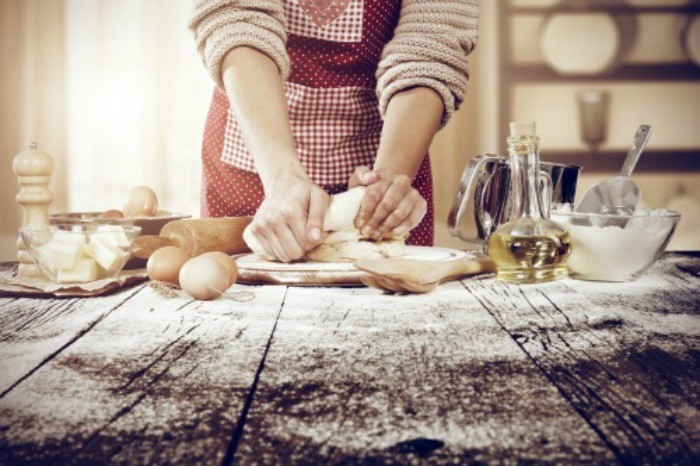

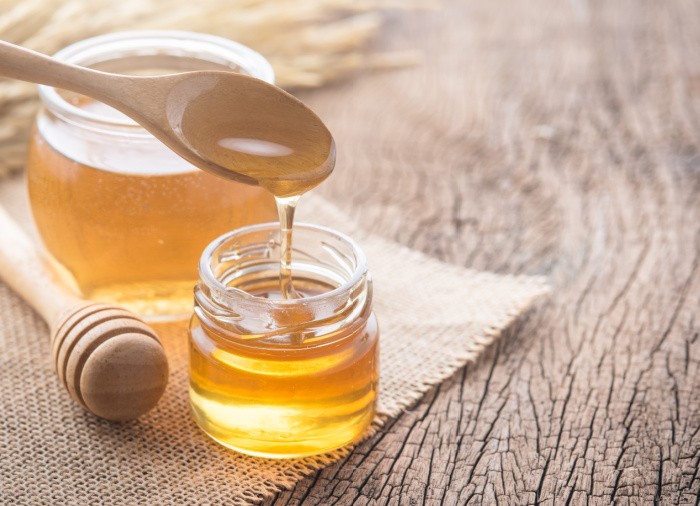
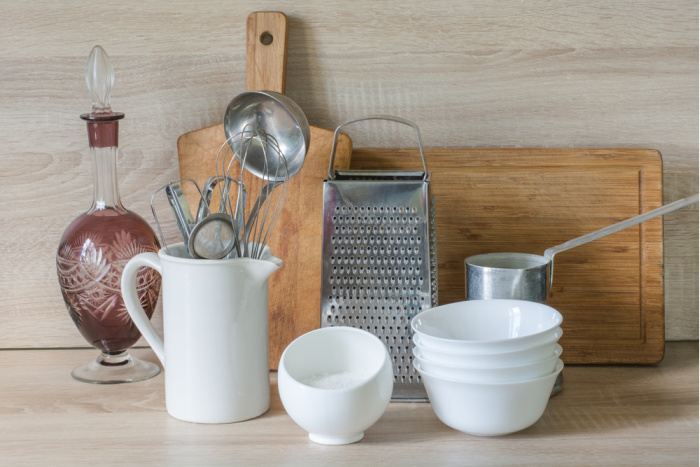
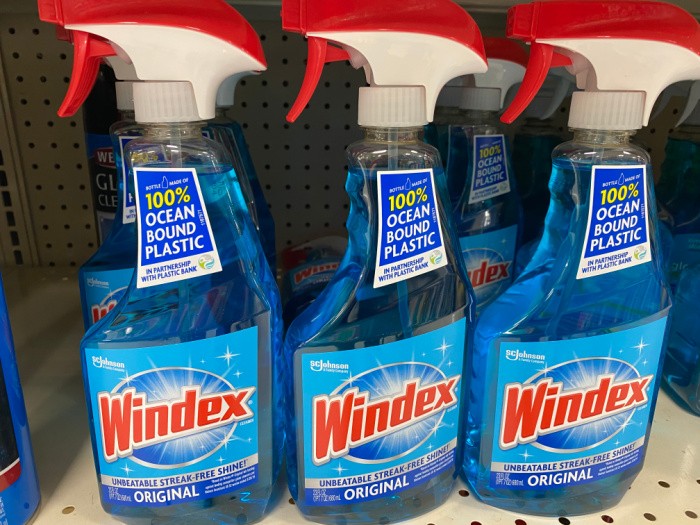

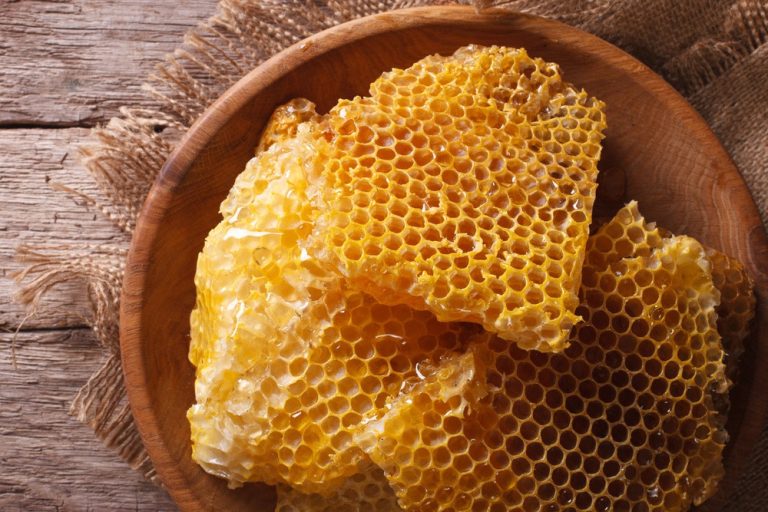
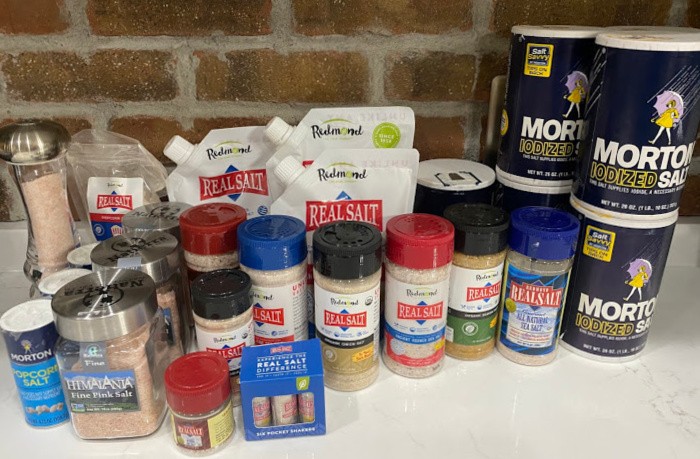
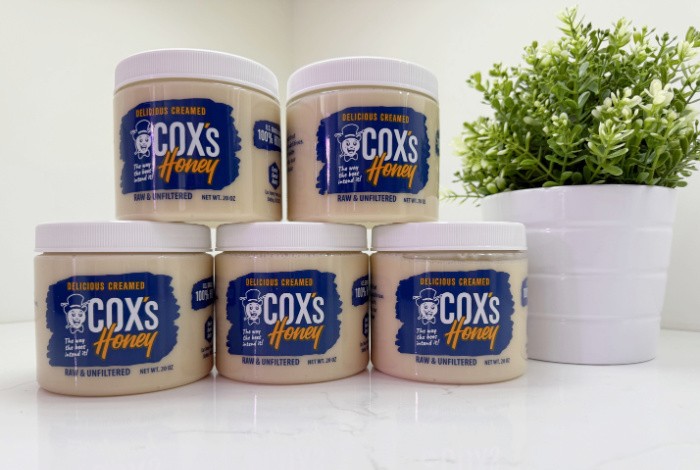
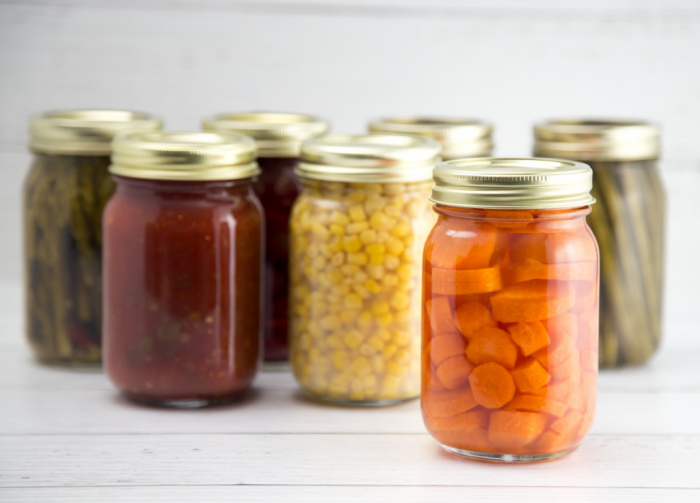
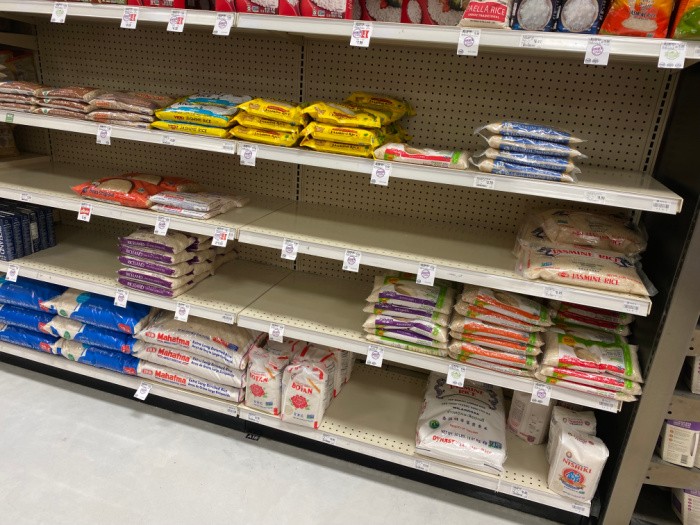

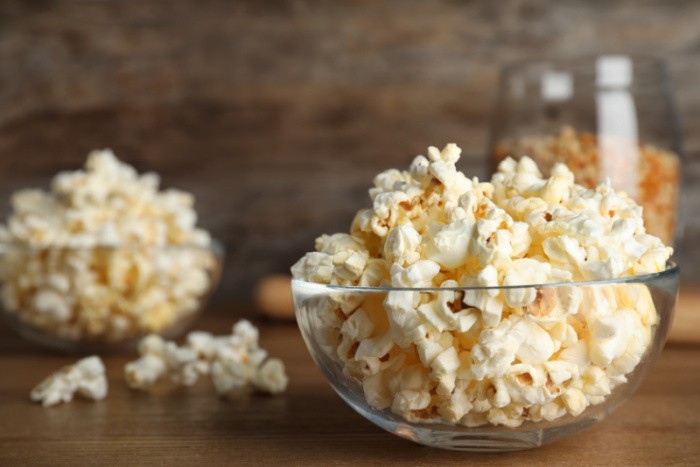
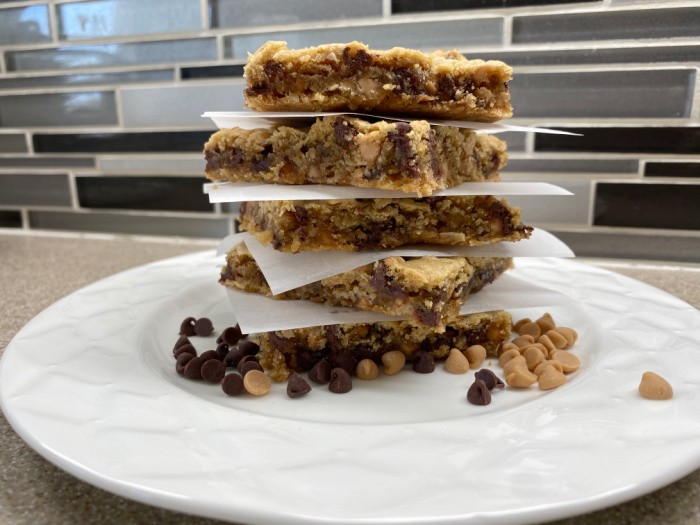

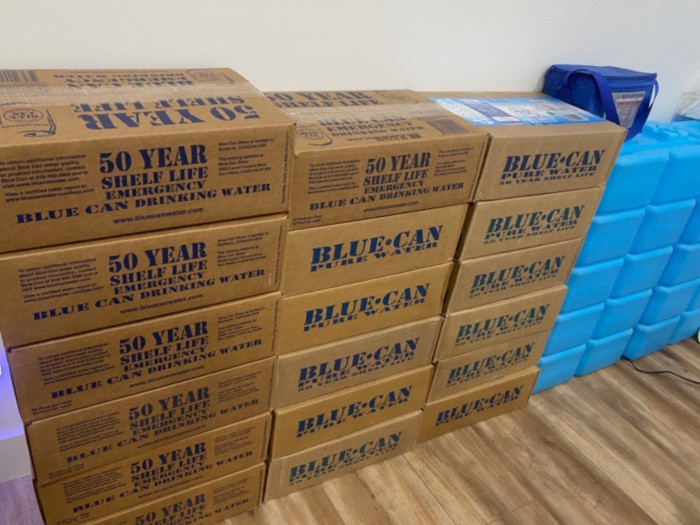
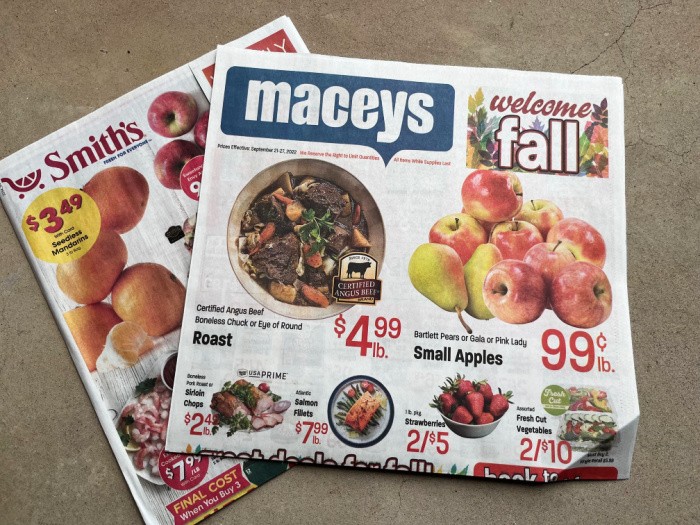
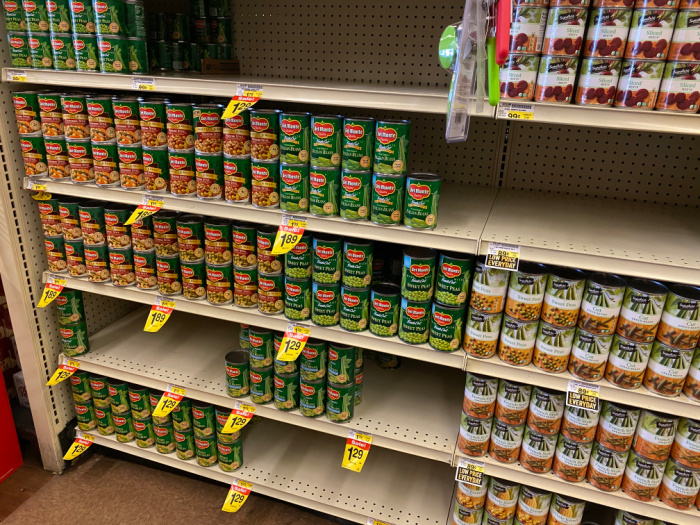
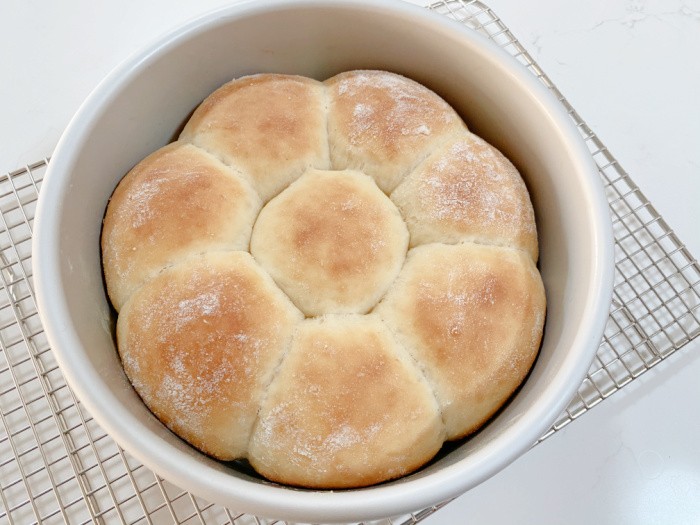
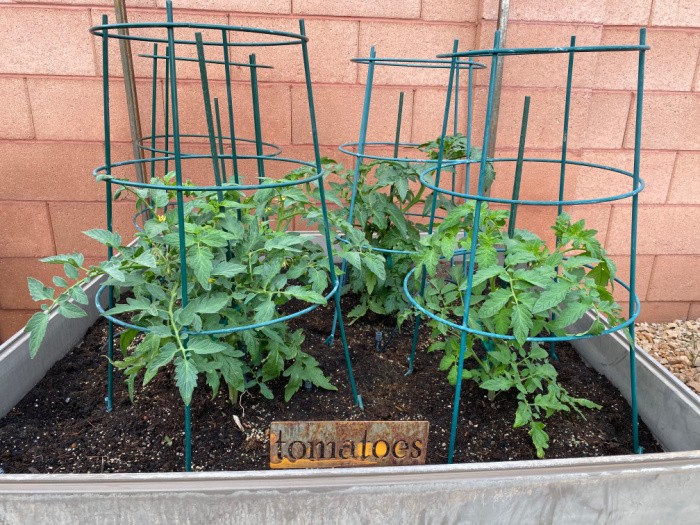

Wonderful list. Under health and personal hygiene, I would add, Make sure to change your furnace filter often.
Janet, thank you, I’m adding that right now. Linda
I love this list. I can do quite a lot of them. Now is a good time to work on the ones I don’t know how to do.With the whole world staying in at this time due to Covid-19 it’s a great time to do this. Thanks for all of your wonderful blog posts. Stay safe
Hi Morgan, thank you for your kind words. It really is a good time to learn some new skills and teach others the ones we know. Stay well, Linda
Morgan I definitely agree with you. Recently I have been looking into all kinds of survival and homesteading tips. As a Veteran I know some things but like everyone else I can always learn some new things. Being mainly at home right now gives me ample time to do this. Stay safe and healthy. Dee
Janet, I put it under Home Maintenance. Thanks again, Linda
What happened to teaching Home Economics in junior high and high school? This may be the only place a young person can learn homemaking skills.
Hi Patricia, I hear you on that one. What did happen? I learned a lot in those classes. Great comment, Linda
I also learned money management in home ec – how to open a bank account, write a check, and how to make a budget. I never enjoyed cooking classes until I had a wonderful teacher who taught cooking as science and so much suddenly made sense. My mom taught me to sew before I took sewing in school. In our 4-H program, we can’t recruit volunteers to be ‘Family and Consumer Science’ leaders because this generation doesn’t know how to be homemakers themselves. When 4-H offers cooking as an after school program, there is always a waiting list as kids are hungry (pun intended) to learn to cook.
Debbie,
yes learned a bunch in Home Ec as well. Why in the world do they not teach this today? People are amazed that I can sew and make a complete suit if needed and when I was first married, I knew nothing but making pies and cakes from scratch. I am so sad that the young people do not know what we know but maybe, just maybe we can help them out. Depending on whether or not they can pull their squinty little eyes up from their cell phones or not. LOL. Anyway, it is always good to talk to people of like minds. Bless you and your family.
vivian
Cincinnati Ohio
Hi Vivian, we need to talk to each other through comments, because we understand each other. May God bless the world to put their phones down and learn to converse with one another. Hugs, Linda
Home Economics classes got cut from schools because of budget cuts, and yet they turn around and hire extra principals and assistant superintendents. Schools, at least in our area (NW New Jersey) have become so top-heavy with staff. If they cut a few of those unnecessary positions out, they could reinstate Home Ec (and agriculture, and woodshop). It’s truly a sad state of being. I always loved my sewing classes, but then I knew how to sew before I even had those classes.
Hi Carol, I knew how to sew before I took those classes in Home Ec as well. But, I learned some really cool NEW ideas to encourage me to learn new techniques that I didn’t know. I made a beautifully tailored coat with lining. I learned the basics at home from my mom which I will be forever thankful for but I learned harder sewing steps that I was so proud to learn at school!! I took Home Ec every year and loved it!!! It really is a sad state of affairs. Great comment. Linda
I never had a chance to take home ec, it has nothing to do with phones! The young generations have been stripped of having such a well rounded education in school! & knowledge was never passed down to me by family either. I’m reading your article at age 27 🙂
Hi Lindsey, it really is sad that some of the school systems and even a few homeschoolers do not teach some skills we all need. I’m lucky my mom taught me what she knew. All we can do is learn one skill a month or every quarter. At 27 years of age, you have a lifetime to learn and teach others the skills you learn. Thanks for stopping by, Linda
Hi Debbie, I am adding Money Management, that’s a great tip, I’m on it. Thank you so much! Linda
My brother is 13 years younger than me and in his school they combined home ec and shop and called it Life Skills. It was co-ed and taught a few skills from both classes, plus family life with the Egg Baby. Because of trying to do a little of everything, nothing was covered thoroughly. Better to teach them yourself or learn together. Could even make badges or pin awards to make it more fun.
Excellent list.
Hi Davette, I love your name! I have seen the TV news show school classes with the Egg Baby and also a Lifelike baby. Kids are carrying around a car seat, bottles, and diapers. We do indeed need to teach them ourselves. Thanks for commenting, Linda
Brings back memories, In the early 1960’s We took weekends in the Desert, like camping out, had a cabin, no walls, just like a big garage and I hung sheets from the rafters to make rooms, The kids loved it and so did I, they could run and play and watch little chipmunks and kangeroo rats steal the dogs kibble… and we brought out milk goat with us in a cardboard box on the floor of the back seat of the Oldsmobile.. She would jump into the box and not try to get out till we arrived in the desert.. Slowly it became harder and harder to go back to the city, that big 2 story home didn’t have the feel of being out in the air and learning how to live this way.The clear nights in the desert showed us the sky and the stars, never seeing them in Los Angeles. no one had electricity so the soft light of a kerosene lamp of another cabin many acres away was restful. we saw visitors a mile before they got here from their headlights.. we had Heaven here.. So rented out my home, moved to the desert and have loved it every since.. now as I have aged and the children are grandparents, I look back and see nothing I could have done different to raise my family. they learned how to survive and no way will they ever be in a situation that they won’t find a solution for..
Oh, Jeanne, I love this comment, I felt like I could feel the earth beneath my feet the and smell the air in my mind. You should be applauded for teaching your children to be self-reliant. I love this comment, thanks so much for sharing. Linda
My first attempt to dehydrate was to get the bakers rack(13 shelves) of day old breads and not want them to mold, so took old window screens and put them in the non running car in the back yard and covered the screens with the bread, so it all dried quickly to be put in burlap sacks for the creatures, cow, horses, burro, pony and chickens ducks and geese loved their bread treats and it cut down on the price of food for them.. later I wanted a dehydrator, took about 15 years before I got my first Excalibur, and here I am with my Excalibur taking up space on the counter, waiting for the next load… even the red beans after being cooked can be dehydrated, for instant bowl of soup. Hamburger rocks ate kept in the fridge or the creatures would find them..
Jeanne,
thank you for your post. We can dehydrate cooked beans and store them??? what a wonderful thought.
bless you.
Vivian
Cincinnati Ohio
i look down the aisles at the grocery store, a lot is freeze dried but also just dehydrated.. I love fixing up the tiny marshmallows for my great great grandson, they turnout crunchy and he loves them.. a little like the bits of dried marshmallows in cereal. He also loves the rolls of dried fruit leather made out of yogurt. i dry applesauce for him too, adding a bit of cherry jello to it, and make into rounds like pancakes so they dry and I can roll them up in wax paper, He gets so much nourishment from his treats. I am drying some red, yellow and green bell peppers right now, they will then be made into seasoning by putting them in the blender till like seasonings you buy at the store but so fragrant and tasty. i am so pleased to have found this site, so many learning and offering ideas, and a great lady bringing out the best of ideas for stock piling for the future.. thanks for letting me join. I don’t have a printer but write out the lists of how to use my elect pressure cooker and all the other lists. nice to remind ourselves of the next thing we must do…
Jeanne, I would be happy to send you the ones you would like printed. Linda
I just put in my excalalibur dehydrater 7 racks of hash browns this morning as we have been digging our potatoes since Saturday so I canned 14 qts. of yukon gold potatoes and made tater tots to go in the freezer I am tired but I love my dehydrator and I love all of the responses from everyone .
So from me in the south to you all wherever you are ROCK ON!!
Oh, Debbie, how awesome!!!! I love my Excalibur dehydrator. You are rocking it girlfriend, I love it! It’s such an awesome feeling to see the fruits of our labor, thanks for sharing. I have never done hash browns!!! LOVE it! Linda
Hi Jeanne, I am going to dehydrate some cooked beans. You have inspired me, I love this comments as always! Life is good, Linda
Linda, all great items and I agree so many today are lost without that processed foods and fast foods. I wish everyone would at least look into doing one thing a week or month that is made from scratch. Learning any one of these skills would only help our families to live a more self relieant lifestyle. Not only to be more self relieant but to feel the empowerment of learning something new and better able to do for themselves. So I’m off the soapbox for now. Keep up the good work.
Learn to make noodles. So much better than bought ones. Learn to make pies from strach. No store bought pie shells for me.
Oh you can sure tell a home made pie from one that is made out a bought crust, cutting the butter or Crisco with 2 knives into the flour… the flaky crust that is delicious. I don’t do them anymore but remember how the pie came out of the oven and before the fruit could jell up , cut into and gone before dinner, same with fresh baked bread, I would bake 7 loaves and the hot bread was torn apart, so hot and butter spread on it and the kids would eat a weeks supply of hot bread quickly..The joy of having a family that enjoyed old time ways..
Jeanne, I love this comment, I’m going to add learn how to make pies, great comment! Linda
Hi Bebe, I’m adding this to my list right now. Great comment, Linda
Leen-Daaa!!
Hello my friend. What a beautiful list to hang on my fridge. I love it. thank you.
So today, (thanks for asking..lol) I am going to attempt to make sweet potato flat bread in coconut oil. Wish me luck. Oh and BTW…please show me how to grind up my flour beans to make flour. I suppose I am going to have to go to the dungeon and drag up a few beans and try it out, but I almost hate to open the bag thinking the rest will spoil. hmmm….Need an expert here! pronto and that would be you Linda. LOL…thank you so much for being there for us. Lord knows we need you more and more!!!
hugsx3
Vivian
Queen City Cincinnati
Vivian, I have never dehydrated any beans. I will work on that. I love it when you say Leen-Daaa, my cute uncle used to call me that! Hugs, Linda
Linda, listen Linda = have you seen that “Listen Linda” video? It is a hoot. It went viral.
anyway, I need to know how to GRIND flour beans into to flour. I know that the actual beans last longer than the ground up beans so we should only grind as much as we are going to use. But it would be so helpful to know that I am doing it properly. I wish I could send you that video. Ask you daughter to pull it up, she would know I’m sure. You will love it. thanks again.
vivian
Oh, my dear friend, Vivian, my kids and grandkids call me that: Listen Linda….yes we have watched that video so many times and I get the giggles just thinking about the term…Listen Linda. You are so cute to tell me about that YouTube. It makes me giggle every time I hear or think about it. Hugs, Linda
Linda, (Love the name, it was my Sister’s) I have heard of dehydrating dry beans, but never heard how. Can you give me directions? Love your posts, keep them coming! Carol
HI, Carol, I have a sister named Carol Ann, she goes by Carol. We must be close in age, I love it! I have never dehydrated beans, It looks Like I better get on that and learn how to do them. I will look in my Excalibur Dehydrator book. I’m glad you love my posts, I love the interaction with my readers! Hugs Linda
What??? You didn’t add crocheting and knitting! I admit I can’t knit well to save my life but I’ve been crocheting for 50 years and, given enough skeins in the same dye lot, can make a huge variety of things that would be welcomed in a homestead home. Maybe the home itself, lol.
It’s very rare for me to encounter a young person today who knows what I’m doing when they see me crocheting away while waiting to see the doctor or whatever — “What’s that you’re knitting?” — and I mentor whomever shows an interest in this wonderful skill.
Hi, Valerie, I just added it, oh my gosh!! Thanks for the reminder, I put your name next to it! Thanks for reminding me. I Love it! Linda
Hi Valerie, I have to thank you again for reminding me about knitting and crocheting. I am left-handed and someday I want to watch some left-handed YouTubes to show me how to master knitting and crocheting. Linda
Do it! Thanks to YouTube, the mystery and fear about learning a new skill can be minimized or eliminated, and there are crochet bloggers out there who are also left-handed and who post wonderful step-by-step guides:
https://www.pinterest.com/patterncrochet/free-videos-left-handed-crochet-patterns/
https://www.youtube.com/watch?v=vM-d8WjfN8M
Love your site and will be looking for a pic of your first left-handed crochet potholder project.
Cheers, Valerie
Hi Valerie, oh thank you so much. I had to remove the Red Heart website because I have what’s called a “Secure” website and Red Heart does not have the green key looking deal on their URL link. It’s a safe and wonderful website but my website will be penalized if I have any links that are not “Secure” within my blog. I am following that Pinterest website right now!!! Thanks for the tips! I love it! Linda
You’re welcome! Good luck and have fun learning another great homesteading skill.
<3 Linda
Valerie, I would love to make one of those left-handed crochet potholders!!! Hugs, Linda
What a fantastic list! Thank you for taking the time to organize & compile it. I see that I have a few (possibly more than a few ) holes in my skill set. I do think there are two important items that should go on this list in the health & hygiene section:
1) Basic first-aid skills – up to, and including, closing a wound with stitches and setting a broken bone.
2) CPR class
I remember taking these classes at the YMCA long ago, but I am pretty sure Your local fire station would be able to steer you in the right direction.
Now it is entirely possible that I missed these in your post or someone else may have already mentioned them in the comments. So if I’m being redundant, I apologize. And if you don’t think these should be on the list, that’s fine as well. I promise you won’t hurt my feelings.
Thank you for the great website and all your hard work putting out all this valuable info.
— w4shep (Dan)
Hi Daniel, thank you so much for this great comment! I’m adding these right now. I love ideas from my readers!! Love these, Linda
I’m a 41 year old disabled single mom of 4 beautiful children. And I’m proud to say my kids can do most of these things! Even the ones I can’t due to disabilities. They can all knit and crotchet even my son! They range from 6,8,16,19. Two left handed ones! We don’t draw gender specific tasks because well because!! My daughters can cut wood and start fires and my son can sew and cook. They are constantly asked how do you know that?? My 19 year old has taught other girls in her dorm to knit and budget and my 16 year old senior just aced an economic project because he was not only able to budget and come under all the students but back up his showing homemade was cheaper and he could do it! First time I’ve seen real world application in high school since I was in high school! As he told his teacher “my mom does poor well!” We recently moved up to Alaska and I am forever grateful that I have been scratch cooking, stretching food, and know how to rely on all of those skills!
Hi, Jaime, I must tell you upfront this comment made me very emotional. I love hearing comments where a mom and or a dad have taught their children to work. You must be a proud mama! You have taught your kids the meaning of work and joy as well to share their talents with others. I love the phrase “my mom does poor well”. I tip my hat to your entire family and I’m sending hugs to Alaska to a family who knows how to be self-reliant. OH, and you have two left-handed kids, I love it! Linda
Every beginner and a small village person who is willing to learn homesteading skills can refer to the old homesteaders to use their experience.
Hi, you are so right, there are so many homesteading skills we can learn and teach to others. Linda
Great list! Most of the basic recipes I’ve printed off of Pinterest and other favorite sites. Thought it would come in handy in case there was a power outage. I keep all my copies in a binder along with your printable emergency lists.
Thanks for sharing!
Hi Joyce, you are so nice, thank you! I’m so glad you have a binder with my printable lists, that melts my heart!!! Blessings my friend, Linda
There is a national group that teaches these things called Ladies Homestead Gathering (.org). As it’s name suggests it’s just for the ladies 16 years and up. Whether one lone tomato plant, a homestead or a fully operational farm; women come together to share knowledge and community.
Hi Allison, I am going to look this up, thank you!!! I love these tips! Linda
I would add Learn how to write a check and how to Balance a Checkbook. You would be surprised how many young folks coming out of high school have no clue how to handle a checking account.
Hi Tina, I love your comment! I’m adding it right now to the post! Thank you! Linda
Learn the basics of weather and buy a barometer and outdoor thermometer. This can save your life, your home, your crops.
Hi Nancy, that’s a great tip! We inherited my father-in-law’s. Great comment! Linda
Can you make this a printable list?
Hi Patricia, you can actually print the whole post. Just say you do not want pictures, I believe. So many people print all of my posts. Look for the green PRINT button on the top right of the article. Linda
Thank you the canning advice. I have been a Master Food Preserver for more than 30 years and have seen many changes in canning protocol. Even though intensive training is no longer offered through our county’s Extension office, a one day option is now available. Food safety is stressed, along with up to date methods.
HI Louise, I’ve been canning for 50 years (just turned 70) and learned from the Ball canning book and took classes from the state extension service before they called us Master Canner Food Preservers. A few things have changed over the years due to the acidity of tomatoes for one thing. I shudder when people write about canning bacon, eggs, milk, and butter. Oh, my goodness. I love hearing from a safe canner, thank you! Linda
I was also taught basic home maintenance. How to rewire a lamp with a frayed cord, so as to not have to throw away, and other basic home skills. I was also taught basic auto skills, change oil, change filters, fuses, lights, and the battery, and how to use tools and what they were for.
Hi Cheryl, oh how I love your comment! I remember when they taught sewing in school and woodshop. In Utah, those classes have stopped. These are the basic skills we all need. Great comment! Linda
I love this! I am 30, there are a lot of these I do and do not know how to do. I admit finances as far as budgeting elude me and I have no green thumb bit I am trying. I can sew buttons on and sew blankets, I am trying to learn to sew clothes for my kids. I am a hands on learner, I wish I had someonw to show me some of these things! I watched my grandma do all of this.
Hi Cassandra, oh, I love hearing you know how to do many of these! The nice thing is that you can watch YouTubes sometimes or check on your local state extension services. There are so many opportunities now for taking classes, one at a time. I admire your eagerness to learn! You can do this! Linda
I enjoy your pins on Pinterest very much. I already do all the things you show, but am amazed that anyone else still does. We certainly must be dinosaurs.
Our dehydrating is very easy here in AZ…just two clean sheets with food spread between them in the back yard. I plan to clean off the remaining lemons today and can the juice to use when the stone fruits ripen in a couple months. Life is very easy here in the desert. It took quite a few free master gardening classes at the library to learn to garden in this climate but we seem to be over the hump.
With the current long lines due to the virus scares I’m very thankful to have food and water put back. So simple to do over a long period of time, a little here and a little there. Like planting a tree: the best time is twenty years ago, the second best time is today.
Thanks so much for your efforts to teach these skills. Please keep up the good work.
HI Sandy, oh I would love a lemon tree!!! I love your comment! I write to teach others to learn the skills I grew up with. Life is so good if we can be self-reliant. Thank you for your kind words, Linda
People need to learn how to shop for groceries. Make a menu based on sales and what you already have. Stick to your list. Check prices, bulk sizes are not always cheaper. Check prices per ounce. Clip coupons. Compare brands. Some store brands taste or work as good as name brands or better.
Hi Charlene, great comment, wonderful tips! Thanks for sharing, Linda
Have you tried using ORGANIC lard in a pie crust? Try to use leaf lard(lard rendered from fat found near the pig’s kidneys). It’s the traditional lard used for baking. Check with your butcher about finding it. It’s what was used to make piecrusts 190 years ago.
Hi Elbert, I wonder if that’s what my mom used to buy!! I loved her pie crusts! Great tip! Linda
Hi Linda,
Thank you for this list.
Please use plastic canvas or stainless steel sheet’s onto your wire shelves. Some foods react negatively to the wire and could make you real sick.
Hi Mae, great tip, thank you! Linda
how to build traps for rabbits hogs,etc ? skin rabbits or squirrels , chicken ,clean &, cut up & hog, deer to skin ,,make sausage ,render lard , make & set trot lines for fish & turtle & how to clean , so much is lost ! throw cast net for fish , i could go on & on !
country girl aint’ gonna go hungry ! jus too “old for most of this now
i was so lucky to have hubby that did all of this & we did together,i learned from the best !
such wonderful memeries ! jus ‘ramblin “!
i read all your posts ! love every one !
stay safe in this “crazy ”world !
Hi Daphne, oh my gosh, I LOVE LOVE LOVE your comment! Your comment brings me so much joy! I love hearing life stories like this! Thank you for sharing! Linda
Don’t forget seed saving! It’s an important skill to learn and pass on.
This is a great list! 🙂 Thank you for putting it together!
Hi Christayla, great comment, I need to go add that! It’s critical now more than ever! Thank you, Linda
Although my sewing is the pits I can cook up a storm. Although except for a few recipes I know from scratch if I have your recipes in front of me I can make things from scratch.
Hi Jackie, I need my recipe in front of me as well, that’s why I print them! It’s still cooking from scratch! My eyes are not as good with sewing these days but I still mend stuff and make bags for my daughters pre-school. Life is good, we can do it! Linda
I have no idea why I never commented before on this post!! Anyway, I was fortunate that I grew up with parents who taught us how to do just about everything about homesteading/homemaking! I “can” cook from scratch, sew reasonably well and manage livestock on a farm!
A few comments about dehydrating: 1) cook your beans to your desired doneness. Rinse well and dehydrate until they are hard! Cooked and dehydrated beans then become “instant”!! Just rehydrate – either in hot water or in your soup/stew. If in your soup/stew, just be aware that the beans will take up a significant amount of liquid so watch it carefully and add additional liquids as needed.
2) you can also dehydrate cooked rice and noodles – again, cook to your desired doneness, rinse well and dehydrate. Doing this, you have “minute” rice! or instant noodles. IF, however, you are making your own noodles, DO NOT COOK! Just dry them really well and store in a cool/dry container/location.
3) there is an interesting website for making your own backpacking foods: https://www.backpackingchef.com/ I am NOT a backpacker but what I found interesting about this website is under the title Dehydrating, he talks about making “BARK” – veggies like potatoes, sweet potatoes, pumpkin, beans, etc. What you end up with is instant whatever you have dehydrated. He has one recipe/directions for bean bark – he used canned baked beans. Thinking of this, why not make “instant” refried beans?? Or just mash your cooked beans into a paste and spread like you would fruit leather??
4) dehydrating frozen fruits and veggies takes all the work out of it! I’ve read somewhere that frozen fruits and veggies retain most if not all of their nutrients! Cut the work time to practically nothing!
Something that I was gifted a few years ago was a 1923 full cabinet Singer treadle sewing machine. Other than a few dings on the cabinet, the machine itself is in excellent condition. I figure if “it” hits the fan, I can still sew/quilt/create! For those who do sew, you might want to keep your eyes peeled for a sewing machine that doesn’t require electricity.
It is also VERY important that we learn the valuable skill of maintaining our tools! A good way to maintain garden tools is to have a container with sand and a bit of oil – when you are finished using the tools for the day, brush off any residual soil, dip the tool(s) in the sand/oil container to finish cleaning them. The oil helps prevent rust. We also need to know how to sharpen tools and fix the tools.
There are so many little things involved in homesteading/homemaking that we don’t think about until it happens to us!! Then we either KNOW how to handle the situation or LEARN how to deal with it on the fly! Better to KNOW things!!!
Hi Leanne, thanks for the tip on dehydrating beans and rice. I have seen it but I haven’t tried it. I think we learn new things every day and how wonderful is it that we can share them here!! I love it! Linda
This is such a great start of a list and can easily grow and grow depending on the skills each of us have. We also need to remember that not all people need to know all skills, they just need to be good at some of them and then know someone who is good at others. One person might be a great baker while another person knows how to sew; another makes soap and then they trade.
Other skills would be how to build a shelter, clean a chimney, repair a leaky roof, how to raise chickens, rabbits, goats, milk cows, and other livestock skills. How to build a raised garden bed. How to raise bees and collect honey.
Another set of skills would be teaching children. If our society falls, these skills becomes important. Some children are easy to teach, others are not. And contrary to believe, not everyone can teach. We’ve all encountered these people during our academic career or in jobs since then.
I can do some of the skills, want to learn other skills and have no interest in learning others. We are living in an unpresented time and we do not know what will happen as it all unfolds. The more skills we have and the more preps we have, the better off we will be. I would love to fast forward 50 years and see what history has to say about everything.
Hi Topaz, oh, great comment, you are so right. I can make great bread but I don’t have chickens or bees to make honey. We must all bring something to the table when we need to. I would love to fast forward 50 years, oh my gosh, wouldn’t that be fun! Linda